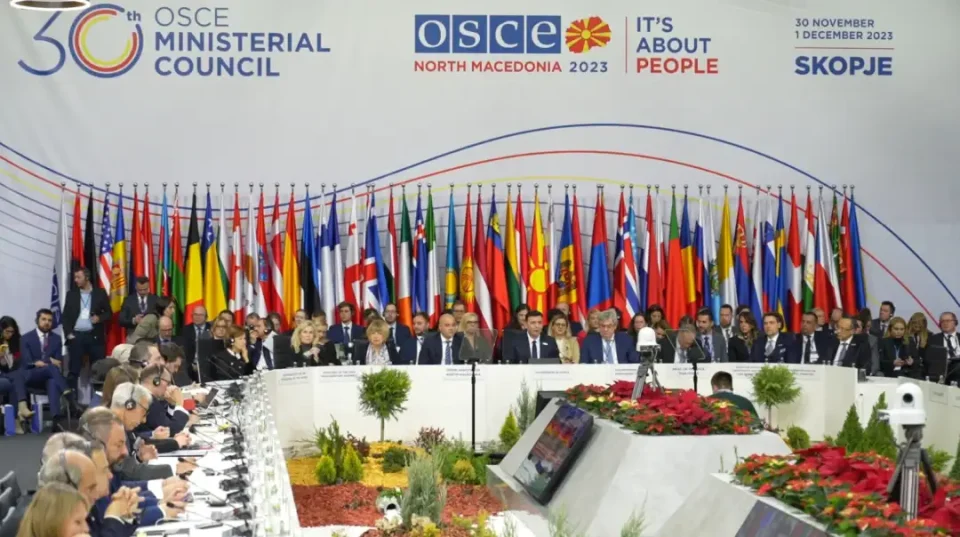Macedonia’s leadership of the Organization for Security and Cooperation in Europe (OSCE) in 2023 was a cornerstone of its foreign policy, with the highlight being the OSCE Ministerial Council held in Skopje on November 30 and December 1. This summit was pivotal in resolving the organization’s crisis, crucial for its continuity, and placed Skopje prominently on the global diplomatic stage.
Over the summit’s duration, more than 70 diplomats and high-ranking officials from OSCE participating and partner countries convened in the capital. Among them were notable figures like Antony Blinken of the USA and Russia’s Sergey Lavrov, although their meeting didn’t materialize. Nonetheless, their presence underscored the significance of the Ministerial Council.
Amid several unsuccessful attempts to support Estonia’s bid for chairing OSCE in 2024 due to resistance from Russia and Belarus, Macedonia’s mediation facilitated consensus on a new candidate: Malta. This agreement on Malta assuming the 2024 OSCE Chairpersonship, alongside extensions of office terms for key officials, proved pivotal for the organization’s future endeavors.
During the concluding press conference of the OSCE Ministerial Council, Foreign Minister Bujar Osmani, serving as the 2023 OSCE Chairperson-in-Office, emphasized that the organization had been rescued and would continue its operational role.
Osmani highlighted the challenges faced during Macedonia’s tenure, particularly amid active warfare and severe threats to European security and the global rules-based order, notably referencing Russia’s aggression against Ukraine. He emphasized how this conflict disrupted trust, dialogue, and the organization’s capacity to function, impacting civilians’ lives and their fundamental right to live without fear of war.
The Foreign Minister lamented the replacement of dialogue and cooperation within OSCE with divisions and polarization, noting how consensus had been manipulated to serve national interests rather than collective ones. Despite these complex dynamics, Osmani asserted Macedonia’s steadfast commitment to upholding OSCE values and obligations.
He credited Macedonia’s resolve, supported by a majority of participating states, for steering the organization through these challenges, preserving its relevance and utility. Osmani stressed the importance of multilateralism in preventing conflicts and resolving disputes, highlighting OSCE’s role as a platform for dialogue.
Speaking of the impact of Russian military aggression, Osmani expressed how it not only devastated Ukraine but also posed a threat to OSCE as a forum for conflict resolution. He reiterated that despite these harsh realities, multilateralism remained crucial in overcoming differences and maintaining peace.
Osmani thanked participating states for their consensus in appointing Malta as the 2024 chair and emphasized OSCE’s programs, field missions, and mechanisms as crucial elements fostering confidence and stability in the region.





Comments are closed for this post.